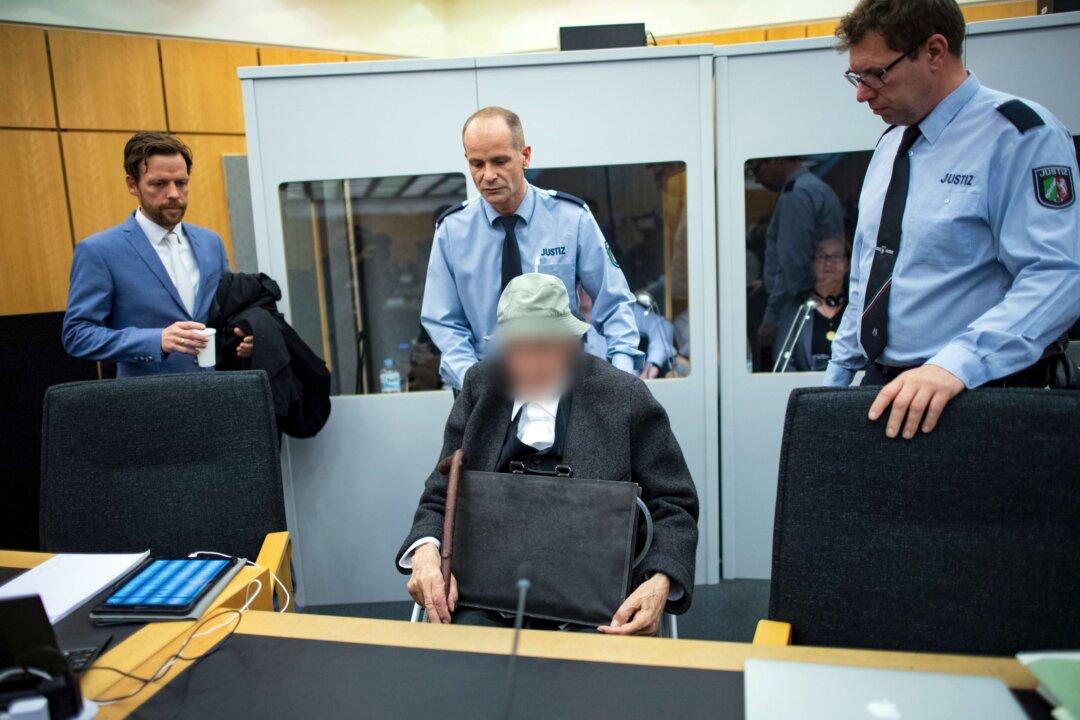MUENSTER, Germany—A 94-year-old German man accused of assisting in the murder of hundreds of people at a concentration camp during World War Two told a court on Nov. 13 he had never been a Nazi and he was not indifferent to the suffering of inmates.
The accused, who cannot be named for legal reasons, was a guard in the SS paramilitary wing of Hitler’s Nazis and could face a prison sentence of up to 10 years if convicted.





